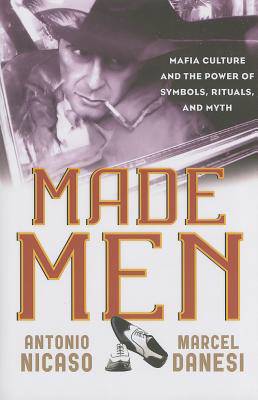
- Retrait gratuit dans votre magasin Club
- 7.000.000 titres dans notre catalogue
- Payer en toute sécurité
- Toujours un magasin près de chez vous
- Retrait gratuit dans votre magasin Club
- 7.000.0000 titres dans notre catalogue
- Payer en toute sécurité
- Toujours un magasin près de chez vous
Made Men
Mafia Culture and the Power of Symbols, Rituals, and Myth
Antonio Nicaso, Marcel Danesi
Livre relié
48,95 €
+ 97 points
Description
Despite depictions to the contrary, the mafia is not a cadre of noble and righteous warriors, a class of citizens working in the shadows but upholding traditional values. Instead, the authors argue, it is a brutal, violent, and ignoble organization that ultimately violates the boundaries of acceptable behavior both within the family and without.
Spécifications
Parties prenantes
- Auteur(s) :
- Editeur:
Contenu
- Nombre de pages :
- 182
Caractéristiques
- EAN:
- 9781442222267
- Date de parution :
- 05-09-13
- Format:
- Livre relié
- Dimensions :
- 155 mm x 237 mm
- Poids :
- 458 g

Les avis
Nous publions uniquement les avis qui respectent les conditions requises. Consultez nos conditions pour les avis.






